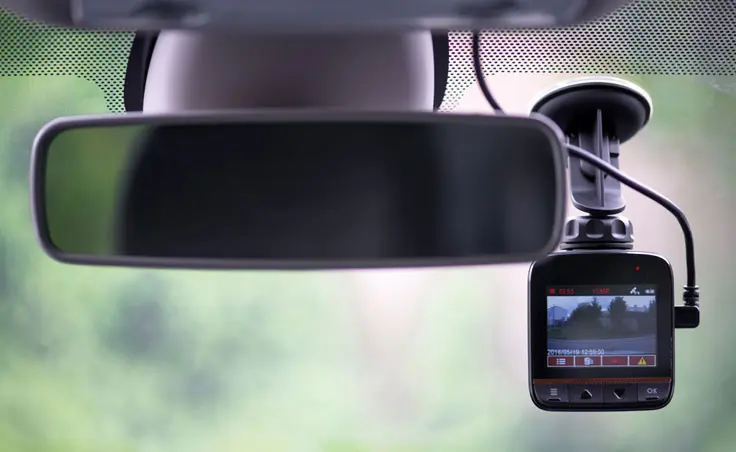Still don’t have a dash cam? Unsure if you need one? Consider it now, before you regret not doing so later.

Dash cams have increased in popularity in the US over the past several years for a number of reasons. Not only do they provide irrefutable evidence in the event of an accident, but they can protect you from fraud—and potentially even save you money.
If you’ve spent much time on the internet, you’ve likely seen a few dash cam accident videos scattered across YouTube or Facebook. While many of these videos used to be from Russia (where insurance fraud is commonplace), more and more Americans these days are now equipping their own vehicles with dash cams. This is due, in part, to both the increasing affordability of these devices, as well as the level of protection they provide to the vehicle owner.
While there’s not much (if any) data showing that having a dash cam in your vehicle makes you a better driver per se, the true purpose of a dash cam is to act as a silent and reliable witness should you ever need one. The hope is that you never will, but seeing how cheap dashcams go for these days, it’s just better to be safe than sorry. If you still need convincing, imagine yourself in either of the following two situations:
Firsthand Video Evidence of an Accident
If a picture is worth a thousand words, then a video is worth exponentially more. Video evidence is, perhaps, the number-one reason why every driver should invest in a dash cam. As a car accident attorney myself, I’ve seen countless situations where video evidence could have made an enormous impact on both the value of the case, as well as the overall time-frame of the claims process.
Getting into a car accident is a horrible experience that invariably sets the blame game into motion. Installing a dash cam can prevent a number of post-accident problems because it acts as a true unbiased witness to what actually occurred. Dash cam video can also be used to demonstrate the severity of an impact (and thus your soft-tissue injuries), which is important in many low-speed collisions where the visual damage to the vehicles may be relatively minor.
Additionally, this video can be used to track down drivers who flee the scene of an accident, and is also quite effective at capturing parking lot dings, break-ins, and/or vandalism. While most dash cams can be set to continue recording for a few minutes after parking, many modern devices now use motion detection and app notifications to provide an extra layer of security when the car is left unattended.
Protection from Insurance Fraud
Dash cams can also provide irrefutable proof if you find yourself victim to an insurance scammer. While extremely rare in America, there are several known incidents of people purposely causing a collision in hopes of extracting a cash payment from the victim or filing a fraudulent insurance claim.
Capturing such an event on video not only helps protect you from potential criminal charges and civil liability, but can even provide hours of entertainment for others on YouTube (like this example) if one was so inclined.
Dash Cams Can Save You Money
In addition to providing firsthand evidence of an accident and otherwise protecting your vehicle, yourself, and your loved ones, some insurance carriers may even offer discounted insurance premiums for vehicles equipped with dash cams and similar security devices.
While many of the biggest insurance players is the US don’t publicly advertise discounts for drivers with dash cams, it really never hurts to ask. The general consensus among industry professionals is that these discounts will eventually become commonplace in the auto insurance world.
Are Dash Cams Legal?
Dash cams are legal in the United States, but there are still certain considerations you must keep in mind. First of all, it’s important to mount your dash cam in a place that doesn’t obstruct your view while driving. In many jurisdictions, there are specific restrictions on exactly how much of your windshield can be obscured by devices like GPS units and dashboard cameras.
When it comes to video, you are legally allowed to record in public spaces where there’s generally no expectation of privacy. Roadways in America are considered to be public spaces, therefore recording video while driving would not be an issue. If you are pulled over by the police, you have no obligation to stop recording. In fact, dash cams are one of the best tools for holding police accountable in situations where, had you not been recording, it would have been your word against the officer’s.
One other thing to consider is whether or not your use of a dash cam violates any electronic surveillance laws. Depending on your jurisdiction, it may be illegal to audio record your passengers’ conversations without their knowledge. Texas, however, is a one-party consent state with regard to audio/video recordings. In order to avoid any potential issues, though, you may wish to inform passengers that your camera is running and recording audio. Most units available today allow you to disable audio recording to ensure that you are not running afoul of any state wiretapping laws.
How Much Does a Dash Cam Cost?
Over the years, dash cams have increased in sophistication—not only with respect to video quality but also in the number of advanced features. As with most consumer electronics, the cost of dash cams have also come down significantly in recent years.
On Amazon, for example, you can purchase an HD (1080p) dash cam for as little as $12. On the other hand, a decent two-camera (front and rear-facing) HD setup can cost anywhere from $50 to $150. Video quality can range significantly between different dash cams, so we strongly recommend researching model numbers on YouTube to get a good sample of what the video quality looks like—especially in low-light situations.
This article intentionally does not link to, not do we endorse, any particular dashcam manufacturer or retailer. The purpose of this article is simply to raise awareness and give our thoughts on what we feel is an important (yet under-utilized) tool that every driver should consider adding to their vehicle.

Montgomery Law is a Dallas-based personal injury law firm focused on getting clients the justice and compensation they deserve.
Call us toll-free at 1-833-720-6090 to discuss your case today for no cost.


Hmm.. you know what? You just made me realize that dash cams only require small amount of of money to set up in our vehicle. My cousin is a truck driver and he keeps wondering if he should have one also. I’ll forward this article to him so he’ll make the right purchase later.